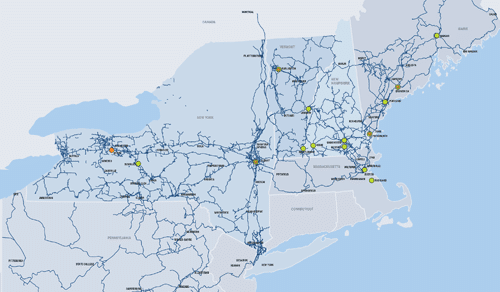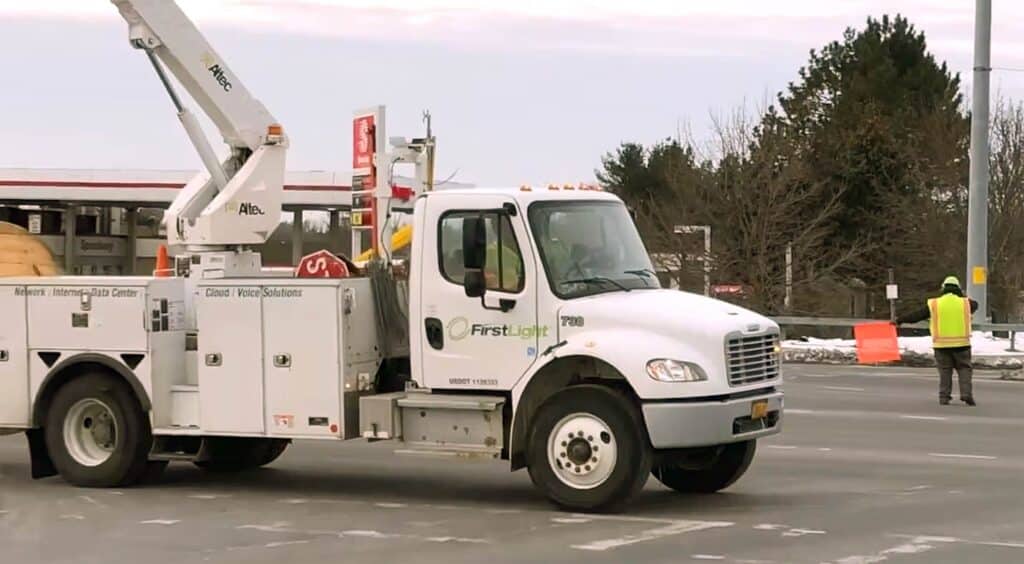
The colocation market is thriving and shows the potential for future growth. Researchers at MarketsandMarkets have anticipated that the colocation market will almost double from the $31.52 billion recorded in 2017 to $62.30 billion in 2022.
It’s understandable that some businesses would choose to move their production or backup environment into a third party data center. In this scenario, a company would locate their hardware in a secure facility, and the data center provider would provide space, power, and fiber-based connectivity.
But what is driving so many companies to move their data to a colocation? Colocations enable companies to take advantage of trends in technology while avoiding risk.
Here’s a closer look at 5 reasons why using a colocation makes sense:
1) Edge computing
Companies strive to achieve real-time analytics. The faster organizations can analyze data, the better chance they have of gaining actionable insights. This need for faster access to data has led to the rise of edge computing. In edge computing, processing capabilities are moved closer to where the data is generated so decisions can be made based on current data.
Leveraging strategically located third party data centers offers the proximity necessary for edge computing. If an organization’s data center is far from the area where data is being generated, colocating in a third party data center may provide easier access. Data can be moved quickly to the colocation for analysis.
2) The Internet of Things (IoT)
 IoT contributes to the need for edge computing and, in turn, the need for a colocation. The trend toward IoT shows no signs of slowing down. IDC predicted that global spending on IoT will reach $772.5 billion in 2018. In IoT, connected devices may be located far from a company’s data center. Equipment may be located in the field, in a warehouse, or at some point along a supply chain.
IoT contributes to the need for edge computing and, in turn, the need for a colocation. The trend toward IoT shows no signs of slowing down. IDC predicted that global spending on IoT will reach $772.5 billion in 2018. In IoT, connected devices may be located far from a company’s data center. Equipment may be located in the field, in a warehouse, or at some point along a supply chain.
A colocation in proximity to the connected devices can act as a midpoint, receiving data from beacons or RFID scanners more quickly than the on-site data center. With a colocation, the IoT data doesn’t need to travel as far over a network to be stored and processed.
3) Improved Physical Security
According to the Identity Theft Resource Center, in 2017 data breaches rose by 44.7% over the previous year, with hacking causing almost 60% of these breaches. Hackers are constantly developing new ways to attack companies’ data centers. They use exploits, malware, and phishing attacks to infiltrate business systems. Hackers may even weaponize your IoT devices and artificial intelligence to cripple your network and find the ideal places and times to attack.
Most organizations are working hard to stay ahead of hackers, but often physical security can be overlooked. The right colocation provides improved physical security, including 24/7 monitoring and systems that restrict the personnel who can gain access to your data.
4) Rising Infrastructure Costs
 Big data is putting a strain on IT budgets by dramatically increasing the capacity needs of data centers. Acquiring and installing additional storage hardware is expensive. Expanding capacity brings larger costs for real estate, energy, and cooling.
Big data is putting a strain on IT budgets by dramatically increasing the capacity needs of data centers. Acquiring and installing additional storage hardware is expensive. Expanding capacity brings larger costs for real estate, energy, and cooling.
Colocation eases the financial burden of housing your company’s storage hardware. A colocation provides the data center space with all the necessary energy and cooling. Many colocation sites offer state-of-the-art infrastructure at a predictable rate.
5) Changing Compliance Regulations
Compliance regulations can be hard to keep track of. KPMG’s 2017 CCO survey found that only 27% of Chief Compliance Officers feel their companies are keeping up with regulations. Some organizations are unsure who is responsible for maintaining compliance.
Industries such as health care and finance must maintain strict controls over the access and preservation of data and transaction records. Violations of compliance regulations are punished by huge fines, even if they occur by accident. These regulations are subject to change, creating even more chance of a violation.
Some colocations undergo external audits by third parties for compliance. These may be related to HIPAA for health care, for example, or PCI. The right colocation facility will help you gain peace of mind that your data center will meet the compliance regulations for your industry.
Navigating the Colocation Market
 Finding the right colocation provider can be difficult with so many available options. When choosing a facility for your colocation, your business should look for key differentiators. Some colocation facilities may offer stronger security, access to high capacity, redundant networks, and wider geographical diversity.
Finding the right colocation provider can be difficult with so many available options. When choosing a facility for your colocation, your business should look for key differentiators. Some colocation facilities may offer stronger security, access to high capacity, redundant networks, and wider geographical diversity.
FirstLight’s data centers offer several benefits. We have 12 facilities in various geographical locations throughout the Northeast.
Select facilities are audited for HIPAA and PCI compliance, and many are SOC 2, Type II certified. Additionally, when you move your equipment to a FirstLight data center, you gain access to redundant network connectivity through FirstLight’s high capacity fiber network.
Find out more and take a virtual tour of our colocation and data center facilities. Reach out to FirstLight today.





















